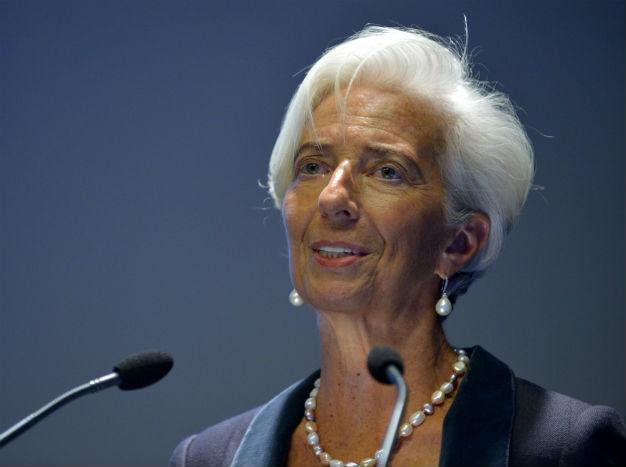Fed hikes need to be gradual, risk hurting emerging world: IMF chief
PARIS - Reuters

AFP photo
Further interest rate hikes by the U.S. Federal Reserve should be gradual or they risk hurting already fragile emerging economies, where many companies borrow in dollars, the head of the International Monetary Fund said on Jan. 12.Christine Lagarde said a tightening in U.S. monetary policy, which started last month with the first rate hike in a decade, should be supported by “clear evidence” of inflation in the United States. She highlighted the negative implications for emerging economies.
“The key issue going forward will be the pace of normalization. We agree that it should be gradual as announced, as stressed actually by the Fed, and based on clear evidence of firmer wage or price pressures,” she told a central banking conference in Paris.
Ebbing confidence in China’s policymaking has fuelled investors’ retreat from the slowing economy and other emerging markets, which had attracted hundreds of billions of dollars over the previous decade thanks to their superior returns over sluggish developed economies.
Lagarde said higher U.S. rates, combined with easing in the euro zone and Japan, could push up the dollar, making life harder for the many companies in emerging economies that borrow in dollars.
“For emerging economies, this could raise vulnerabilities in sectors with dollar exposures, especially corporates,” Lagarde said.
The Chinese yuan has depreciated more than one percent since the start of the year, raising uncertainty over China’s intentions regarding the exchange rate and strengthening concerns Beijing might be losing its grip on economic policy, just as the country looks set to post its slowest growth in 25 years.
Lagarde warned about further, sharp swings in exchange rates due to uncertainty about economic policy and the pace of the economy.
“Beyond dollar appreciation, there is also the potential for increased exchange rate volatility,” she said.
“This volatility could be induced not only by the divergence in monetary policies in major advanced economies, but also by uncertainty about their overall prospects and policy action.”
















